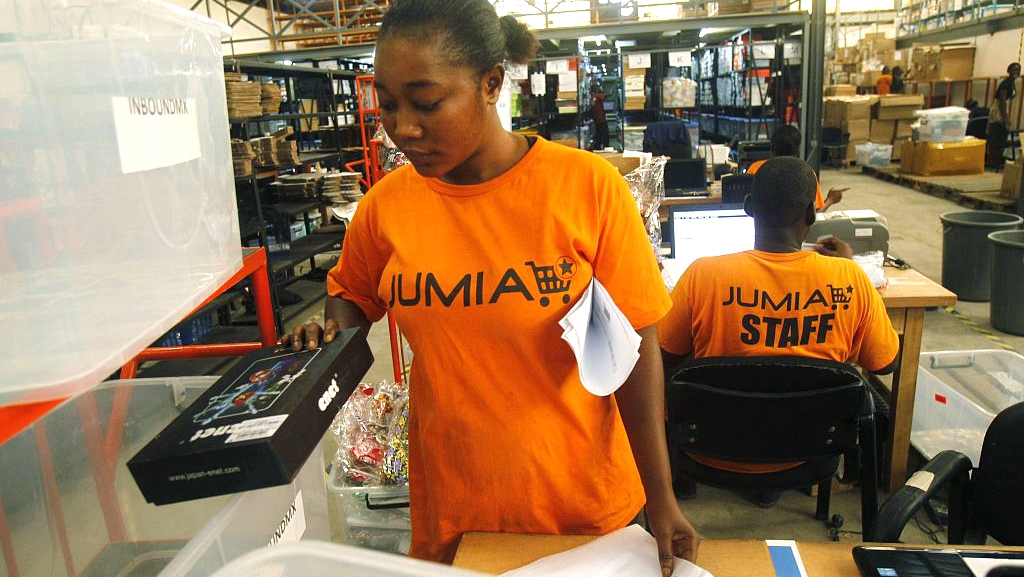
Company
16:34, 02-Apr-2019
Jumia set to become Africa's first New York-listed unicorn
CGTN

African e-commerce company Jumia is set to become the continent's first billion-dollar business to list on the New York Stock Exchange, with plans for an initial public offering that would value the company at around 1.1 billion U.S. dollars.
The Nigeria-based online platform has been nicknamed the “African Alibaba,” and operates in 14 countries, offering some four million African consumers more than six million products from all over the world, including China.
In 2016, a round of funding from Goldman Sachs valued Jumia at 1.2 billion U.S. dollars, and investors lined up to pump money into the company, seeing huge potential in Africa, with its young and fast-growing population and uptake of online and mobile technology laying down strong foundations for e-commerce.
According to Tech in Asia, the platform offers Chinese products to five of its markets in Africa, with Chinese goods making up a “very high” proportion of Jumia's cross-border trade.
The company operates its own warehouses in five Chinese cities, where suppliers can send their products, letting Jumia handle shipping and delivery.

Jumia's office in Lagos, Nigeria. /VCG Photo
Jumia's office in Lagos, Nigeria. /VCG Photo
While Jumia takes a lot of its inspiration from Alibaba, the two are actually rivals in Africa. The Chinese e-commerce giant's international platform AliExpress operates across the continent, and Alibaba has launched a fellowship program to develop the next generation of African e-commerce entrepreneurs.
Other challenges facing Jumia include currency volatility in certain African markets, underdeveloped online infrastructure such as mobile payments and credit cards, and the sheer size and scale of Africa, a diverse continent made up of many individual markets, languages and cultures.
Jumia has also incurred big and growing losses since being founded in 2012, despite impressive annual growth of around 80 percent in the five years from 2018.
The company had accumulated losses of almost one billion U.S. dollars by the end of last year, and annual revenue of only 149.6 million U.S. dollars in 2018 shows it needs to expand rapidly if it wants to turn a profit in the next few years.
Despite these challenges, major international investors like Pernod Ricard and Mastercard have already committed funds to Jumia, with the latter announcing Monday an investment of 56 million U.S. dollars, according to Bloomberg. Pernod Ricard bought a 5.1 percent stake in December for 75 million euros (84 million U.S. dollars).
In February, Jumia signed a partnership agreement with Chinese smartphone brand Xiaomi, opening an official store on the e-commerce platform to gain access to its four million users.

SITEMAP
Copyright © 2018 CGTN. Beijing ICP prepared NO.16065310-3
Copyright © 2018 CGTN. Beijing ICP prepared NO.16065310-3